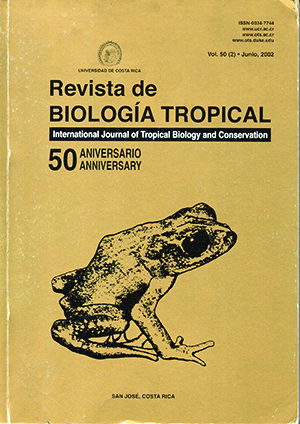Abstract
Pesticide use in Costa Rica is very high and all year round. A high percentage of what is sprayed remains in the environment and in the living organisms around. This situation brings contamination and health problems to people in contact with them. The onset of adverse effects may be in the short or the long term, and symptoms vary widely, from headaches to cancer. Much research in this area has been devoted to acute or chronic effects, and not until recently to the genotoxic effect of pesticides. This study evaluated the genotoxic effect of pesticides used in banana packing activities, using the comet assay (single cell electrophoresis) as the biological marker in lymphocytes. This was a case-control double blind study of 30 exposed women from 15 banana farms and 28 women not occupationally exposed to pesticides from the same geographic area. Results show damage to single stranded DNA after working from 5 to 15 years (R2=0.12). In Costa Rica we do not have an historical record of the kind of pesticides used in banana farms, the period of time and for how long were they used. This prevented further analysis concerning dose, frequency of exposure and use of new or old kind of pesticides in the farms in relation to DNA damage. The comet assay is of value in the genetic monitoring of pesticide exposed populations.##plugins.facebook.comentarios##

This work is licensed under a Creative Commons Attribution 4.0 International License.
Copyright (c) 2002 Revista de Biología Tropical
Downloads
Download data is not yet available.


